Foods to avoid with SVT (supraventricular tachycardia): A complete guide
.jpg)
Discover the foods that trigger supraventricular tachycardia (SVT). Learn which foods to avoid with SVT and how diet can support normal heart rhythm and better cardiovascular health.
Living with supraventricular tachycardia (SVT) can feel unpredictable. One moment, your heart is beating normally, and the next, it’s racing, skipping, or pounding. For most patients with SVT, these episodes are uncomfortable and also anxiety-inducing.
Medical treatments, including medications, play a major role in managing the condition. However, what you eat and drink can also have a significant impact. Certain foods and beverages act as triggers for SVT episodes by stimulating the heart, disrupting electrolyte balance, or interfering with medications.
This article is aimed at providing information about which foods to avoid with SVT (and why) to help you avoid episodes, feel more in control, and support your overall heart health.
{{button}}
Dietary Recommendations for SVT: Key takeaways
- Supraventricular tachycardia causes an abnormally fast heartbeat originating above the ventricles. While diet is not the root cause of SVT, certain foods and drinks can trigger arrhythmias.
- Coffee, energy drinks, and alcohol are strongly linked to SVT flare-ups. Replacing them with herbal teas, sparkling water, or mocktails reduces risk.
- High sodium intake, refined carbs, and ultra-processed snacks can destabilize heart rhythm, raise blood pressure, and promote inflammation, worsening SVT management.
- Overeating or consuming fatty, fried foods late at night may stimulate the Vagus nerve and digestive system, triggering palpitations.
- Some patients with SVT report palpitations after consuming diet sodas, sugar-free products, or foods with artificial additives, suggesting caution with these ingredients.
- Prioritizing foods rich in potassium, magnesium, omega-3s, and antioxidants helps stabilize heart rhythm and support cardiovascular health.
Understanding SVT and the Role of Food
Supraventricular tachycardia refers to a type of arrhythmia marked by an abnormally fast heartbeat. It originates above the lower chambers of the heart, called the ventricles, hence the name ‘supraventricular’. [1] [2]
It often occurs when the heart’s electrical system misfires, creating a “short circuit” that speeds up the rhythm. Some common symptoms of SVT include palpitations, dizziness, chest discomfort, and in some cases, fainting.
Food is not the root cause of SVT. However, it can often act as a trigger. You can think of it as fuel that influences how your heart’s electrical wiring behaves. Some SVT foods to avoid overstimulate the nervous system, while others disrupt electrolytes like potassium and magnesium that are essential for maintaining a steady heartbeat.
That’s why being aware of the foods to avoid with SVT is just as important as managing stress, sleep, and medications.
Here are the top 8 foods to avoid if you have supraventricular tachycardia:
Top 8 Foods to Avoid With SVT
Caffeine and Stimulants
Caffeine is one of the crucial foods to avoid with SVT. As a stimulant, it increases adrenaline release and raises the heart rate, making the heart more prone to electrical misfiring.
In addition, research suggests that consumption of caffeine within a short span of time of your SVT medication may lower its effectiveness. [3]
Coffee, energy drinks, pre-workout supplements, and even large amounts of black or green tea are among the biggest triggers. Chocolate and cocoa-based desserts can also contribute if eaten in excess.
For those sensitive to caffeine, even small amounts may cause problems. Instead, it’s worth switching to decaffeinated coffee or herbal teas such as chamomile, rooibos, or peppermint. Chicory root “coffee” is another caffeine-free alternative you can include in your SVT diet.
Alcohol
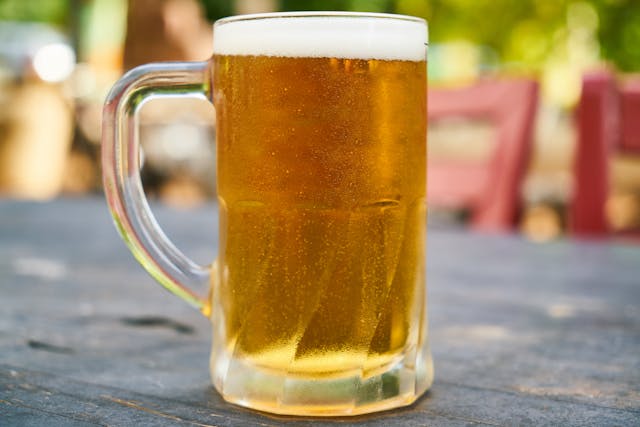
Alcohol is another culprit among the foods to avoid with SVT. Research suggests that some forms of SVTs are two to four times more likely to occur following episodes of heavy drinking. [4]
Even moderate drinking can increase the likelihood of SVT by dehydrating the body, disrupting electrolyte balance, and placing additional stress on the heart muscle. Red wine in particular should be avoided, especially by those worried about can dehydration cause SVT.
Safer alternatives for your SVT diet include sparkling water with slices of fruit, caffeine-free herbal iced teas, or mocktails prepared with fresh juices, mint, and soda water.
High-Sodium Foods
.jpg)
Excess sodium is a less obvious but equally important trigger. Too much salt raises blood pressure and promotes fluid retention, thus increasing the workload on the heart. A high-salt diet can also disrupt the balance of electrolytes, leaving the heart’s electrical system more unstable and prone to arrhythmias. [5]
Some high-sodium foods to avoid with SVT include processed meats such as bacon, sausage, and deli cuts, as well as packaged snacks like chips, pretzels, and salted nuts. Frozen dinners, canned soups, and most fast foods are also known for their high salt content.
Sugar and Refined Carbohydrates

Foods to avoid with SVT also include those high in sugar. Consuming large amounts of sugary foods or refined carbohydrates causes blood sugar to spike, which, in turn, releases insulin and stress hormones like adrenaline. These hormonal shifts can provoke palpitations and episodes of tachycardia.
Over time, a diet high in sugar also contributes to obesity, diabetes, and heart disease, all of which complicate arrhythmia management.
Some high-sugar SVT foods to avoid include fizzy drinks, sweets, biscuits, cakes, pastries, sugary breakfast cereals, and refined grains such as white bread, white rice, and pasta. Safer options for the SVT diet are whole grains such as oats, quinoa, and brown rice. Fresh fruit, rich in fiber, can also help slow sugar absorption and reduce SVT episodes.
Ultra-Processed Foods

Highly processed foods are often included in the list of foods to avoid with SVT as they pose a “triple threat” for heart health: they tend to be high in sodium, loaded with sugar, and rich in unhealthy fats. [6]
These elements put significant strain on the cardiovascular system and promote inflammation, making arrhythmias like SVT more difficult to manage.
SVT foods to avoid from this category include instant noodles, frozen pizza, sweetened granola bars, and deep-fried fast foods. Preparing fresh meals at home whenever possible is the best way to avoid hidden additives and excess salt or sugar. For snacks, consider minimally processed options, such as raw nuts, fresh fruit, or homemade smoothies, as healthier alternatives.
Excessive Fatty or Greasy Foods
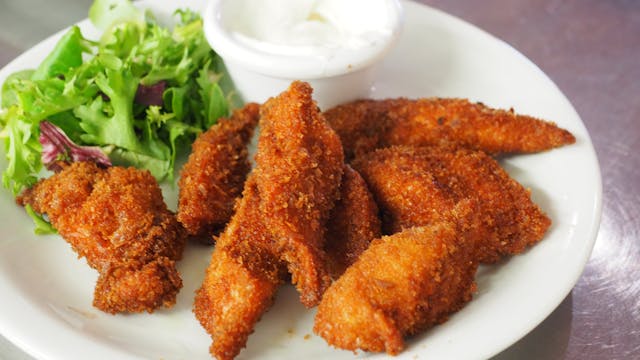
Greasy, heavy meals are not only hard to digest but also play a role in triggering arrhythmias. These foods can stimulate the Vagus nerve, which helps regulate heart rhythm. The resulting pressure can sometimes provoke episodes of SVT.
Additionally, diets high in saturated and trans fats contribute to long-term heart disease.
Common high-fat SVT foods to avoid include chips, fried chicken, creamy sauces made with butter or heavy cream, and fast-food burgers or fried sandwiches. Opting for grilled, baked, or air-fried meals can be a heart-friendly alternative suitable for your SVT diet.
Artificial Sweeteners and Additives
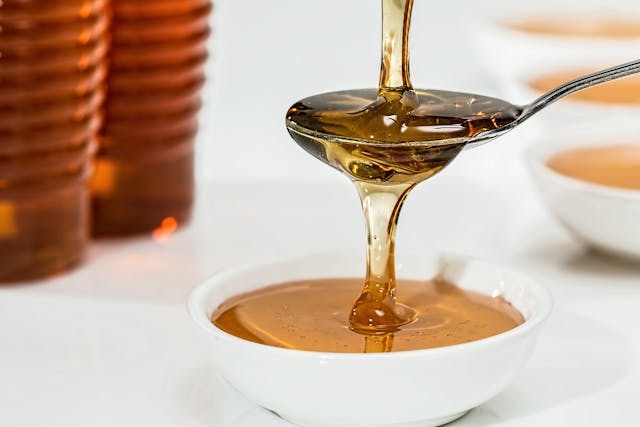
Artificial sweeteners, often marketed as “healthy” or “guilt-free,” can sometimes trigger problems for patients with SVT. Some patients report palpitations after consuming diet sodas or sugar-free products containing additives like aspartame, saccharin, or sucralose, such as chewing gum and processed desserts.
Although research remains mixed, these substances may affect gut-brain communication and interfere with how the body regulates heart rhythm and stress responses. [7]
A safer approach is to choose naturally sweet foods such as fresh fruit. If sweeteners are necessary, small amounts of natural options like honey or maple syrup may be better tolerated.
Large Meals and Late-Night Eating
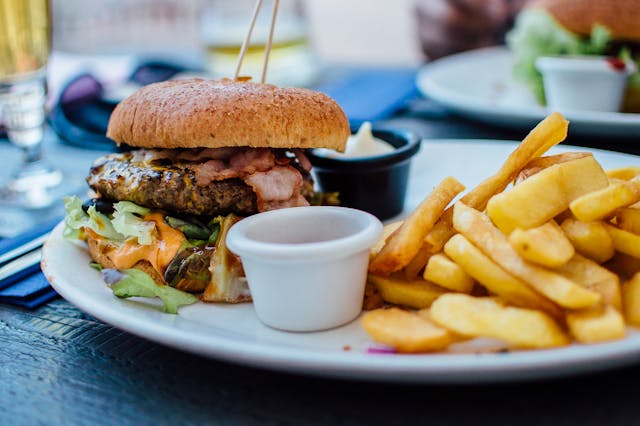
It’s not just the type of food you eat, but also how and when you eat it that matters. Consuming very large meals places extra pressure on the digestive system and the autonomic nervous system, triggering arrhythmias in some people.
Eating late at night carries additional risk, as lying down soon after a heavy meal, especially a high-fat meal, can increase this effect. [8]
To reduce flare-ups, aim for smaller, more frequent meals throughout the day rather than overloading the stomach in one sitting. Avoid eating right before bedtime and try to remain upright for at least one to two hours after meals to give digestion a chance to settle before you rest.
Supporting Heart Health Through Diet
Being aware of the foods to avoid with SVT and avoiding them is essential. However, it’s equally important to focus on what to include in your diet. Foods rich in magnesium, potassium, omega-3 fatty acids, and antioxidants help stabilize heart rhythms and reduce inflammation.
Here are some heart-healthy foods to include in your SVT diet:
- Leafy greens, such as spinach, kale, and Swiss chard.
- Whole grains, beans, and lentils.
- Bananas, avocados, and sweet potatoes (high in potassium).
- Salmon, sardines, and walnuts (rich in omega-3s).
- Berries and citrus fruits (loaded with antioxidants).
Practical Tips for Managing Food Triggers
- Keep a food and symptom journal. Write down what you eat and note any palpitations or SVT episodes. Patterns may emerge.
- Stay hydrated and aim for enough water intake throughout the day, especially if you are worried about can dehydration cause SVT.
- Read labels. Check for hidden sodium, sugar, and caffeine.
- Work with a cardiologist or dietitian. Personalized advice is best, especially if you’re taking medications.
Conclusion
Supraventricular tachycardia can be unsettling and trigger anxiety. However, being aware of the foods to avoid with SVT and making appropriate changes in your diet often makes a big difference in supporting long-term heart health.
The SVT diet that includes avoiding caffeine, alcohol, excess salt, sugar, processed foods, and heavy meals gives your heart the best chance of staying steady. At the same time, building a nutrient-rich diet full of whole, fresh foods strengthens your cardiovascular system overall.
Also, every person with SVT is unique. So, what triggers one individual may not affect another. The key is awareness, consistency, and working with your healthcare team to create a balanced lifestyle. With the right strategies, food can become a powerful ally in keeping your heart calm, steady, and strong.
{{pink-banner}}




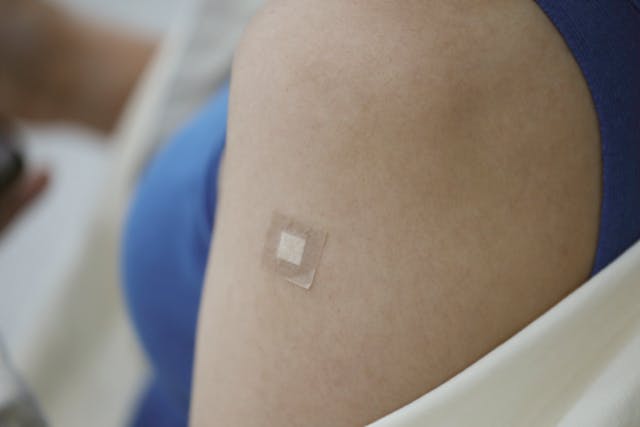



.avif)
